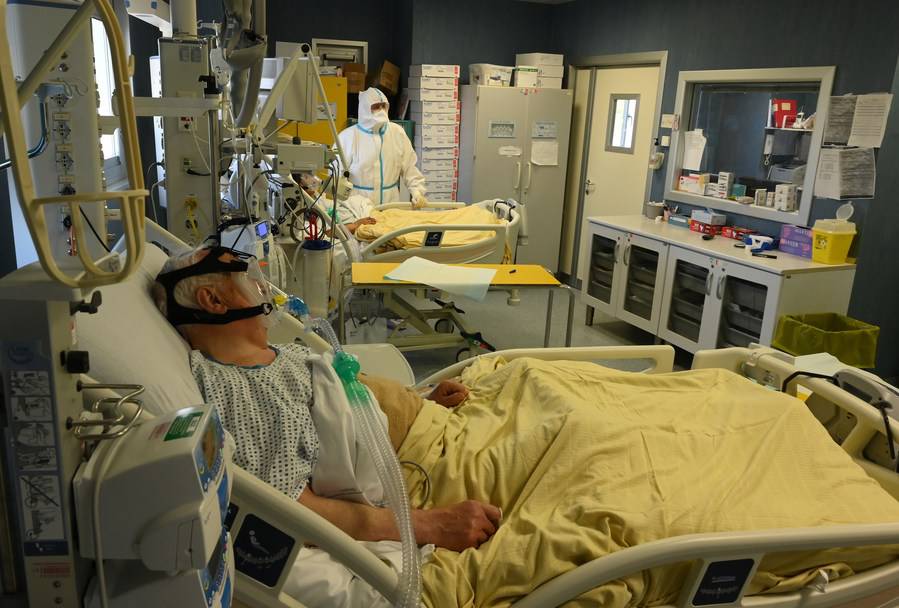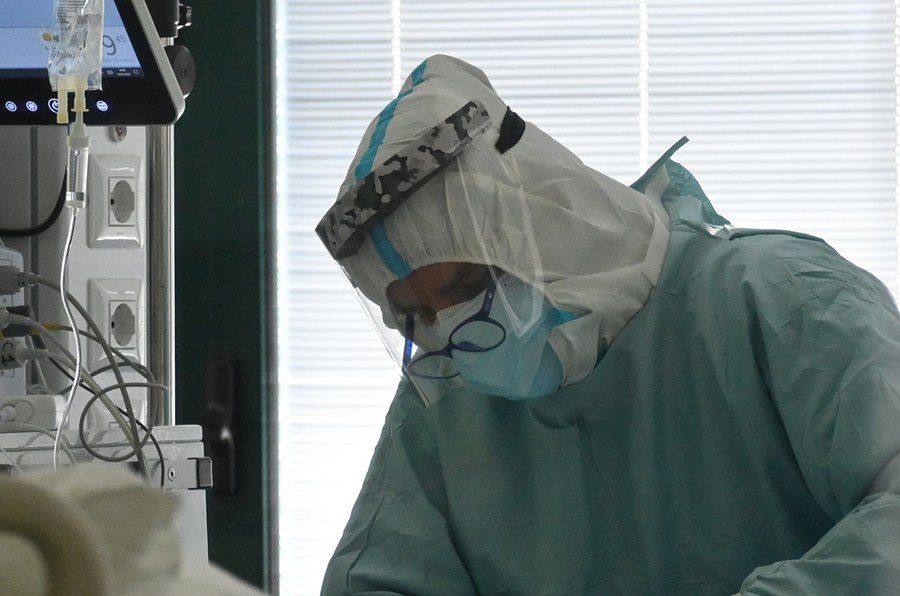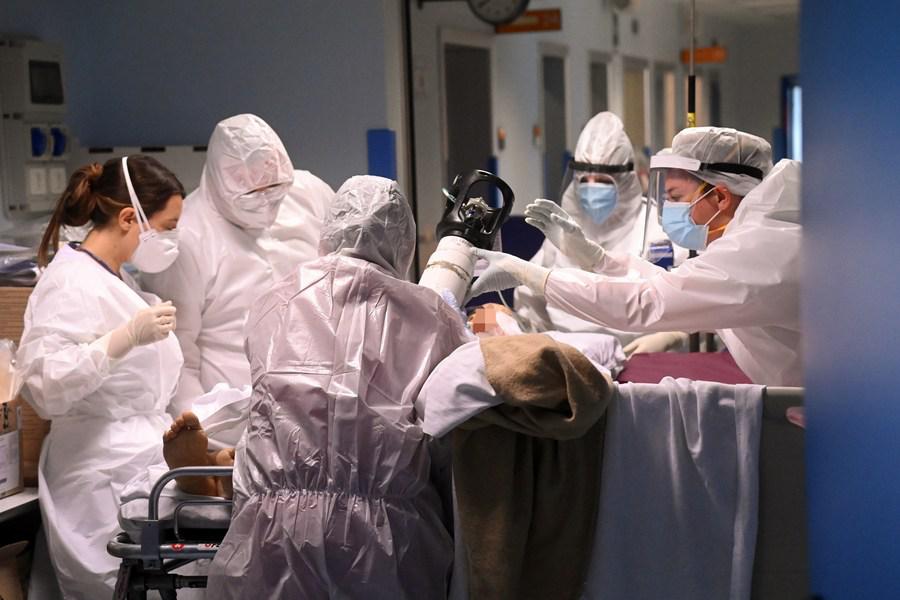Neutralizing antibody responses to COVID-19 last at least 8 months: Italian study

A medical worker works in the Department of Intensive Care Unit (ICU) Center at the San Filippo Neri Hospital in Rome, Italy, March 19, 2021.(Photo by Alberto Lingria/Xinhua)
A research carried out by Italy's National Institute of Health (ISS) and the Milan-based San Raffaele university hospital and scientific institute showed that the presence of neutralizing antibodies in the early stage of COVID-19 infection was "essential" to successfully fight it.
ROME, May 11 (Xinhua) -- COVID-19 neutralizing antibodies persist in patients for at least eight months after a diagnosis and they play a crucial role in fighting the infection, according to an Italian study published on Tuesday.
Neutralizing antibodies are antibodies that bind to a virus cell (or any other pathogen) circulating in the human organism, neutralize its effects and block the infection.
A research carried out by Italy's National Institute of Health (ISS) and the Milan-based San Raffaele university hospital and scientific institute showed that the presence of neutralizing antibodies in the early stage of COVID-19 infection was "essential" to successfully fight it.

A medical staff member works in a COVID-19 unit at a hospital in Bologna, Italy, March 10, 2021. (Photo by Gianni Schicchi/Xinhua)
"The neutralizing antibodies against SARS-CoV-2 persist in patients up to at least eight months from symptoms onset, regardless of the seriousness of the disease, the age of patients or the presence of other health conditions," the ISS said.
"Not only are they essential to fight off the disease, but those (patients) who are not able to produce them within the first 15 days from the contagion are at a higher risk of developing severe forms of COVID-19," it said.
Published in the scientific journal Nature Communications on Tuesday, the Italian study was carried out on 162 COVID-19 patients, whose blood samples were collected between March and November 2020.
Sixty-seven percent of the patients were male with a median age of 63. Fifty-seven percent of them had an underlying health condition when diagnosed with the coronavirus infection, most frequently high blood pressure (44 percent) and diabetes (24 percent), according to the ISS.
According to the study, 134 patients developed a form of coronavirus infection that required them to be hospitalized.

Medical members work at a COVID-19 unit of the Sant'Orsola-Malpighi Hospital in Bologna, Italy, Nov. 12, 2020.(Photo by Gianni Schicchi/Xinhua)
"Contrary to previous studies' findings, the early presence of neutralizing antibodies against SARS-CoV-2 actually correlates with better virus control and longer patient survival," the authors explained.
This happened in most of the cases during the study, with 79 percent of patients enrolled successfully developing these antibodies within the first two weeks of the onset of the symptoms.
"At the same time, although decreasing over time, the presence of neutralizing antibodies proved very persistent, with only three of all enrolled patients not showing them eight months after (COVID-19) diagnosis," the ISS said.
Again, the persistence of these antibodies in the organism occurred regardless of the age or health condition of the patients.
According to research coordinator Gabriella Scarlatti, these findings will have useful implications "both for the clinical management of the disease in individual patients and for the containment of the pandemic."
Photos
Related Stories
- Canada's Ontario stops administering of first doses of AstraZeneca COVID-19 vaccine due to increased blood clot reports
- Chinese mainland reports 16 new COVID-19 cases, all imported
- Nepal reports record high one-day COVID-19 death toll, new infections
- Sri Lanka records highest single-day COVID-19 new case count of over 2,000
- India's Karnataka state announces 14-day lockdown to curb COVID-19
people.cn © People's Daily Online
Copyright © 2021 People's Daily Online. All Rights Reserved.










